Marianne Keating: An Ciúnas / The Silence
–
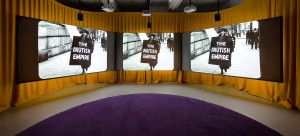
Courtesy of the artist
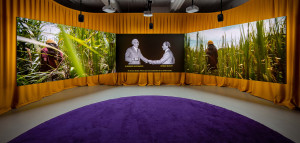
Courtesy of the artist
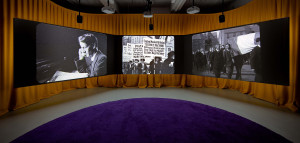
Courtesy of the artist
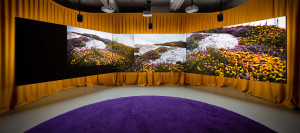
Courtesy of the artist
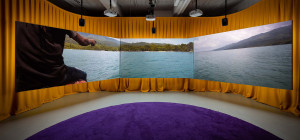
Courtesy of the artist
The Showroom presents An Ciúnas / The Silence, a solo exhibition by artist Marianne Keating. As an immersive, three-channel film installation, the exhibition brings together complex intersecting narratives addressing overlooked aspects of Irish migration during Ireland’s colonial rule by Britain, and their enduring legacies in the present.
Building upon the breadth of Keating’s research over the past decade, this new film traces multiple trajectories of migration from Ireland before and after the Great Famine of 1845-52. The work takes as a starting point the hidden histories of the recruitment of Irish indentured labourers to work on plantations as a new labour force in post-abolition Jamaica. Whilst examining the resulting impact of the Irish diaspora in contemporary Jamaican politics, the film focuses in parallel on Irish migration to Britain due to successive eras of economic crisis; concentrating on the generations ‘lost’ since Irish Independence, and continuing to the recent exodus in the 2010s. Keating re-examines and documents these histories through Irish and Jamaican anti-colonial ties.
An Ciúnas / The Silence brings together archival and personal accounts, counterpoising official state histories whilst challenging the hierarchies generated by the archive, asking which stories are told and who has access to tell them. In the film Keating reconstructs these narratives by excavating official government documents at the Irish, English and Jamaican National Archives, alongside open-source footage; whilst gathering new oral histories and on-site investigations of visual and material traces.
Ultimately, Keating addresses how the force of oppression and persecution that pushed the Irish population towards migration was the same force that pulled them towards indenture; not for their benefit but for the benefit of the British Empire. The work foregrounds Édouard Glissant’s concept of a third space, ‘marked by the fusion of cultural elements drawn from all originating cultures; though never equal, they can no longer be disaggregated, since they […] have been permanently translated’.
The title of the exhibition refers to intersecting erasures within Irish diasporic histories. ‘The Great Silence’ stemmed from the Famine, which reduced the passing down of lore between lost generations of Irish speakers in the Gaeltacht regions, through both death and migration. The silence equally refers to survivors of the famine, “who would not talk of the past” and “would remain silent as to why and how they had survived”. More recently, ‘the silence’ refers to those who remained in Ireland and chose not to talk about the possibility of the failure of those who migrated. Materially, the silence references the near-total destruction of public records held at the Public Records Office of Ireland at the beginning of the Irish Civil War, during the bombing of the Four Courts in Dublin.
A public programme will connect with diasporic experiences in London and the neighbourhood surrounding The Showroom, linking with narratives unfolding in the film. Sculptural seating designed in collaboration with design studio VVFA (Very, Very Far Away) will offer resting places for viewing and discussion, positioning the body within our relationship to land and the on-going legacies of colonisation. The film includes an original score composed and produced by Rod Morris, with cello by Nicola Geddes.
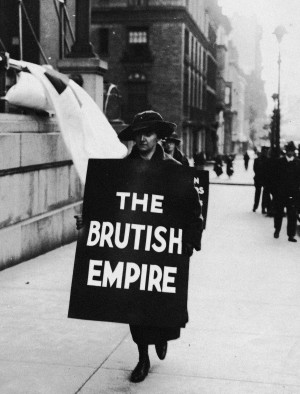
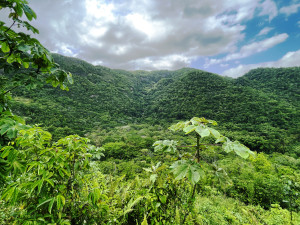
The presentation of An Ciúnas / The Silence will continue in Ireland with a tour throughout 2024-26, initiated and organised by SIRIUS, Cobh, County Cork; beginning at The Model, Sligo and including Galway Arts Centre, Galway; Rua Red, Dublin; Limerick City Gallery of Art; and Wexford Arts Centre.
An Ciúnas / The Silence is supported by The Arts Council of Ireland / An Chomhairle Ealaíon na hÉireann
The Showroom is supported using public funding by Arts Council England. Our 40th Anniversary Programme, within which Marianne Keating’s exhibition features, is supported by Cockayne Grants for the Arts, a donor advised fund held at The London Community Foundation.